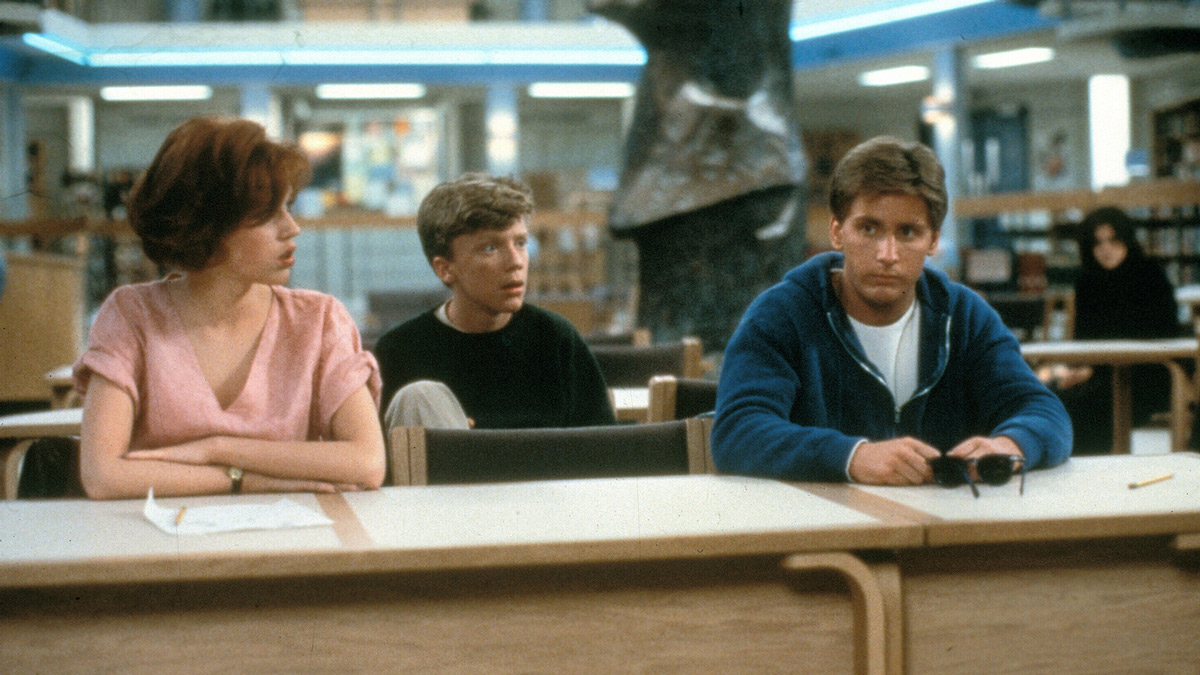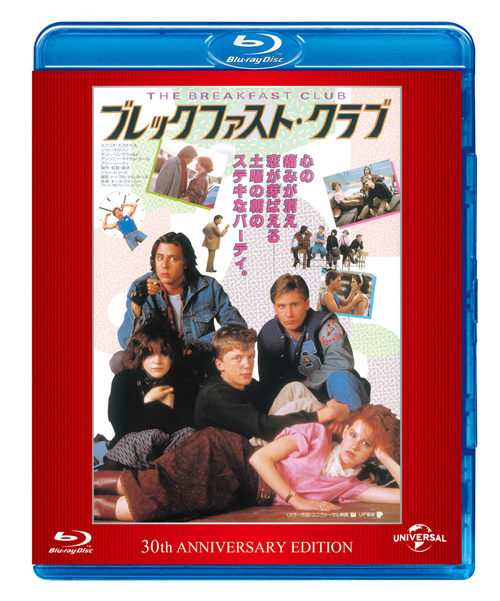
(c) Photofest / Getty Images
“The Breakfast Club” Nostalgia and resignation hidden in the work that become apparent over the years
2020.09.28
The true identity of Karl, the cleaning staff
Early morning on Saturday, March 24, 1984. The film begins with a clear date and time. 1984 is one of the most important years for the United States. That summer, the Los Angeles Olympics were held, bringing the United States 83 gold medals, the most ever won in the tournament. If you look closely at the cola cans in the lunch scene, you can see that they have an Olympic-exclusive design. In the US Open tennis tournament that followed, American players John McEnroe and Martina Navratilova dominated the championships. In the fall, Ronald Reagan was re-elected as president. Bruce Springsteen 's album " Born in the USA, " which sold about 30 million copies, became a symbol of the era (although it was used politically against his will). These events made the United States, which was in the midst of an international East-West conflict, even more impressive to the world as a "strong America." America was in great form at the time.
Despite being made in such a time, "The Breakfast Club" is somehow lackluster. You might think, "That's to be expected, since it's just a movie about high school students who are forced to take extra lessons in the library, talking endlessly." However, rather than hope for the future, the film gives the viewers a sense of resignation. The reasons for each of the characters' misdeeds that got them to take extra lessons are not "just pranks to enjoy high school life," but rather a cry from their hearts that "if they carry on like this, they will be crushed."
Ferris Bueller's Day Off's Day Off Trailer
Comparing this to the hedonistic portrayal of Ferris Bueller's Day Off 's Day Off (1986), released the following year by director John Hughes, one can see the difference in how high school students of the same generation see their prospects for the future. Ferris finds meaning in life by enjoying school life. This is probably because he is at the top of the school caste system. However, what both The Breakfast Club and Ferris Bueller's Day Off Bueller's Day Off have in common is the hidden nostalgia and resignation from an adult perspective that "the brilliance of high school is a fleeting moment in life." This is why the author, who once sympathized with the students, has somehow come to sympathize with the words of the adults.
When Carl the janitorial staff points out to Vernon that "it's you who has changed," Vernon responds by saying, "Listen, when they get older, they're going to be the ones who carry this country! I wake up in the middle of the night worrying, thinking that I'm going to depend on them in the future." Even to such comments, Carl responds with a philosophical "don't count on me." Why is he, a janitorial staff member at a high school, portrayed as a person with such a philosophical position? There is a reason for this.
In the opening scene of "The Breakfast Club," actual scenes from the school are shown one after another. It is a common production to introduce the kind of place the film is set in. From a full view of the high school to the hallways, the concession stand, the lockers, littered garbage, and graffiti. Then, for a moment, photos of past students with outstanding grades are shown, hung with a "MAN OF THE YEAR" plaque. At the center of the students representing each year is a man named CARL REED, the 1969 "MAN OF THE YEAR." Yes, this is the cleaning staff member Carl in his younger days, who would have been the object of envy from his classmates.
【source】
・The Breakfast Club theater pamphlet
・The Breakfast Club Blu-ray bonus footage
・ENTERTAINMENT WEEKLY 2015.6.29
"What about "THE BREAKFAST CLUB"?" by Molly Ringwald
Text: Takeo Matsuzaki
Film critic Graduated from Tokyo University of the Arts, Graduate School of Film and New Media, majoring in film. After working on TV and movie sets, he turned to writing specialized in movies. Currently appearing on TV, radio, and online distribution programs such as ``Plus'' and ``Japan Group.'' He has contributed numerous articles to ``Kinema Junpo'', ``ELLE'', movie theater pamphlets, etc. Currently, he is a member of the Kinema Junpo Best Ten selection committee, a judge for the ELLE Cinema Awards, the Tanabe Benkei Film Festival, and the Creators Factory section of the Kyoto International Film Festival. Co-authored “Modern Movie Terminology Dictionary” (Kinema Junposha) and others.

The Breakfast Club
30th Anniversary Edition New Digitally Remastered Edition: 3,990 yen + tax
Publisher: NBCUniversal Entertainment
(C) 1985 Universal Studios. All Rights Reserved.
*Information as of September 2020.
(c) Photofest / Getty Images

